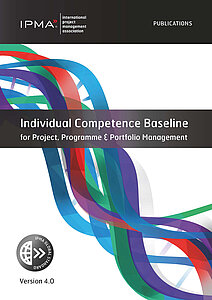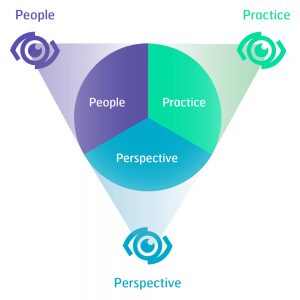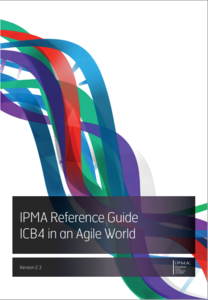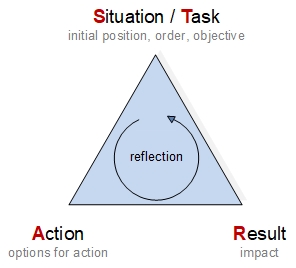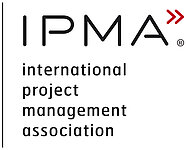The presentation will give you an overview of the IPMA® 4-level certification scheme. You are welcome to download and use it.
The IPMA® 4-level certification scheme at a glance
The internationally recognised IPMA® certifications give employees in the private sector and public administration as well as self-employed entrepreneurs the opportunity to demonstrate their competence in project, programme and portfolio management. The certification makes it easier for companies and organisations to recruit successful, trustworthy personnel for the management of projects, programmes and portfolios. Towards customers, the certification can be used to attest the corresponding competence of employees.
The video gives you an overview of the IPMA® 4-level certification scheme.
The benefit of certification
Benefits for you as a certified person
- Proof of your competences on the basis of the IPMA Individual Competence Baseline
- Objective, neutral confirmation of your knowledge and experience in project, programme or portfolio management
- International recognition of your competences in project, programme or portfolio management with the appropriate title
- Better chances on the increasingly demanding job market and better career opportunities in your company
- Securing your workplace
Benefits for your company or organisation
- Demonstrate competence in project, programme and portfolio management to your customers, suppliers and partners
- Securing a competitive advantage over your competitors
- Establishment of a comparable qualification standard for your staff in project, programme and portfolio management
- Career path for project, programme and portfolio management in your company
Benefits for your customers
- Allows your customer to assess the competence of your staff before the project starts.
- Increases the security of a successful completion of the project as well as when awarding contracts.
- Demonstrates the many years of experience of your staff in project, programme and portfolio management.
Benefits for internationally active companies and organisations
- Communication and cooperation in interdepartmental and transnational projects are accelerated and gain a high degree of compatibility.
- International comparisons of project, programme and portfolio management become possible.
Benefits to society
- Promotes innovation and social change.
- Serves the efficient and sustainable use of resources.
This makes the certification unique
The basics of certification in project, programme and portfolio management
The IPMA Individual Competence Baseline (IPMA ICB®) is the worldwide standard for individual competences in project, programme and portfolio management. The ICB supports personal development by describing a complete inventory of competences for managing and participating in projects, programmes and project portfolios.
Projects, programmes and portfolios are at the forefront of changes in our modern world. Projects drive the development of new products and services, are the main tool for the orderly handling of investments and expansions. Every project, no matter how technical, begins and ends with people whose competences are central to its successful execution.
The IPMA ICB® competence standard supports the development of each individual and thus of entire organisations in order to be able to survive in the face of increasing competition. The IPMA standard for individuals describes a comprehensive inventory of competences. Each individual must possess these competences or, if necessary, develop them in order to successfully master the work expected in projects, programmes or portfolios.
The ICB comprises three areas of competence, which together form the Eye of Competence®:
- Contextual competences (perspective): This competence area encompasses the entire context of a project, programme or portfolio. This is because each project, programme and portfolio must be embedded in a specific framework that will motivate people, organisations and societies to initiate and implement projects.
- Competences related to people: These consist of the personal attributes («I») and the competences that an individual needs in order to successfully participate in or lead projects, programmes and portfolios («I and the others»).
- Competences related to practice: This competence area covers the specific methods, tools and techniques used in projects, programmes and portfolios in order to implement them successfully («project management skills»).
The certification in Agile Leadership
There is a need in the market for competent Agile Leaders, not in the form of a new formal role, but rather in an informal one. A person is a true agile leader when he or she is able to inspire others to put the Agile Mindset into practice. An agile leader can also influence the agility and willingness to change of a company.
The IPMA Individual Competence Baseline (ICB4) describes the competences that a person must have in order to be successful in project management. This IPMA Reference Guide ICB4 in an Agile World describes how to interpret the different competences in an agile environment.
What are the advantages of certification in Agile Leadership?
- The increasing transfer of responsibility to all levels in the company
- The need for people who can inspire others within the organisation to adopt an agile mindset.
- The focus on people, their personality, their way of thinking and their agile leadership skills
- The certification is based on competences proven in practice.
- The independence from general conditions, industries, methods and techniques
- The dissemination of projects that are carried out with hybrid project management.
- The combination of best practices from plan-driven project management with agile approaches
The use of the STAR methodology in the interview
In an interview, knowledge about your past behaviour in a certain situation makes it possible to assess your future behaviour in a later, comparable situation with the highest probability. It is necessary to know the framework of your past actions and their results. For this reason, each example of your past behaviour or past performance must provide information on the three aspects listed below:
- Situation as the starting point for your actions
- Procedure, i.e. your concrete actions or measures
- Results or changes brought about by this procedure
Only information containing these three elements are real and complete examples of behaviour.


